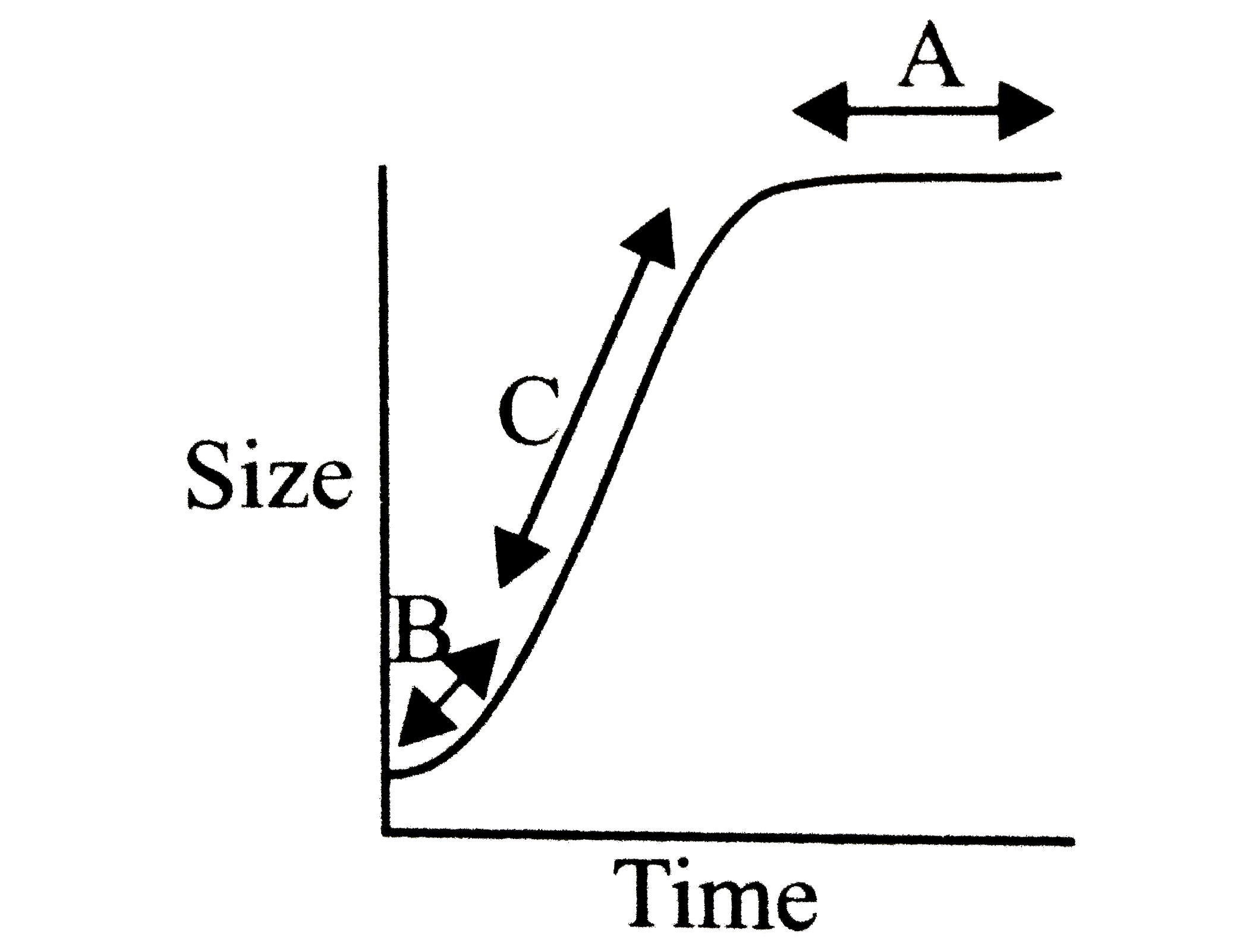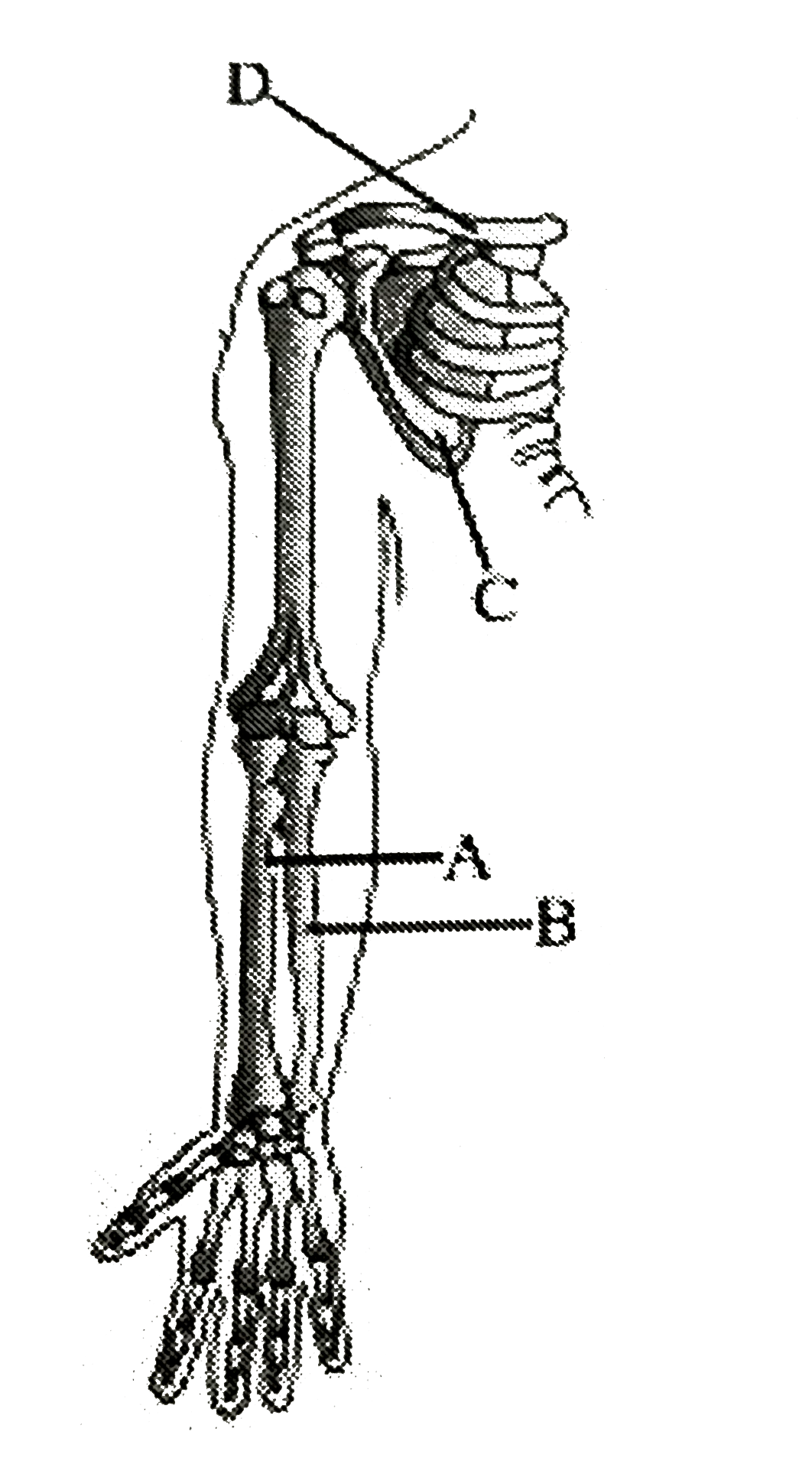Given below is a graph drawn on the parameters of growth versus time A,B and C respectively represent.
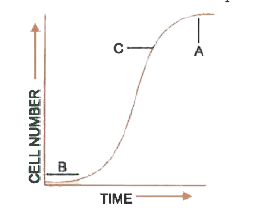
Exponential phase, lag phase nd steady state phase
Steady state phase, lag phase and log phase
Slow growing phase, lag phase and steady state phase
Lag phase, steady state phase and log phase
The correct Answer is:B
Step by step video, text & image solution for Given below is a graph drawn on the parameters of growth versus time A,B and C respectively represent. by Biology experts to help you in doubts & scoring excellent marks in Class 12 exams.
Topper's Solved these Questions
- BOOK - MODERN PUBLICATIONCHAPTER - ORGANISMS AND POPULATIONS EXERCISE - COMPETITION FILE (OBJECTIVE TYPE QUESTIONS)(B. MATCHING TYPE QUESTIONS: )4videos
ORGANISMS AND POPULATIONS
- BOOK - MODERN PUBLICATIONCHAPTER - ORGANISMS AND POPULATIONS EXERCISE - COMPETITION FILE (OBJECTIVE TYPE QUESTIONS)(C. ASSERTION - REASON TYPE QUESTIONS: )10videos
ORGANISMS AND POPULATIONS
- BOOK - MODERN PUBLICATIONCHAPTER - ORGANISMS AND POPULATIONS EXERCISE - REVISION EXERCISES (VI. LONG ANSWER TYPE QUESTIONS)(B. QUESTIONS FROM CBSE EXAMINATIONS)8videos
ORGANISMS AND POPULATIONS
- BOOK - MODERN PUBLICATIONCHAPTER - MOLECULAR BASIS OF INHERITANCE EXERCISE - CHAPTER PRACTICE TEST (Section - E)1videos
MOLECULAR BASIS OF INHERITANCE
- BOOK - MODERN PUBLICATIONCHAPTER - PRINCIPLES OF INHERITANCE AND VARIATIONEXERCISE - CHAPTER PRACTICE TEST section-e(Long answer type question)1videos
PRINCIPLES OF INHERITANCE AND VARIATION
Similar Questions
Knowledge Check
- Question 1 - Select One
Given below is a graph drawn on the parameters of growth versus time A,B and C respectively represent.
 AExponential phase, log phase and steady state phaseBSteady state phase, lag phase and log phaseCLog phase, steady state phase and logarithmic phaseDLog phase, lag phase and steady state phase
AExponential phase, log phase and steady state phaseBSteady state phase, lag phase and log phaseCLog phase, steady state phase and logarithmic phaseDLog phase, lag phase and steady state phase - Question 2 - Select One
Given below is a graph on the parametes of growth versus time A,B , C respectively represent
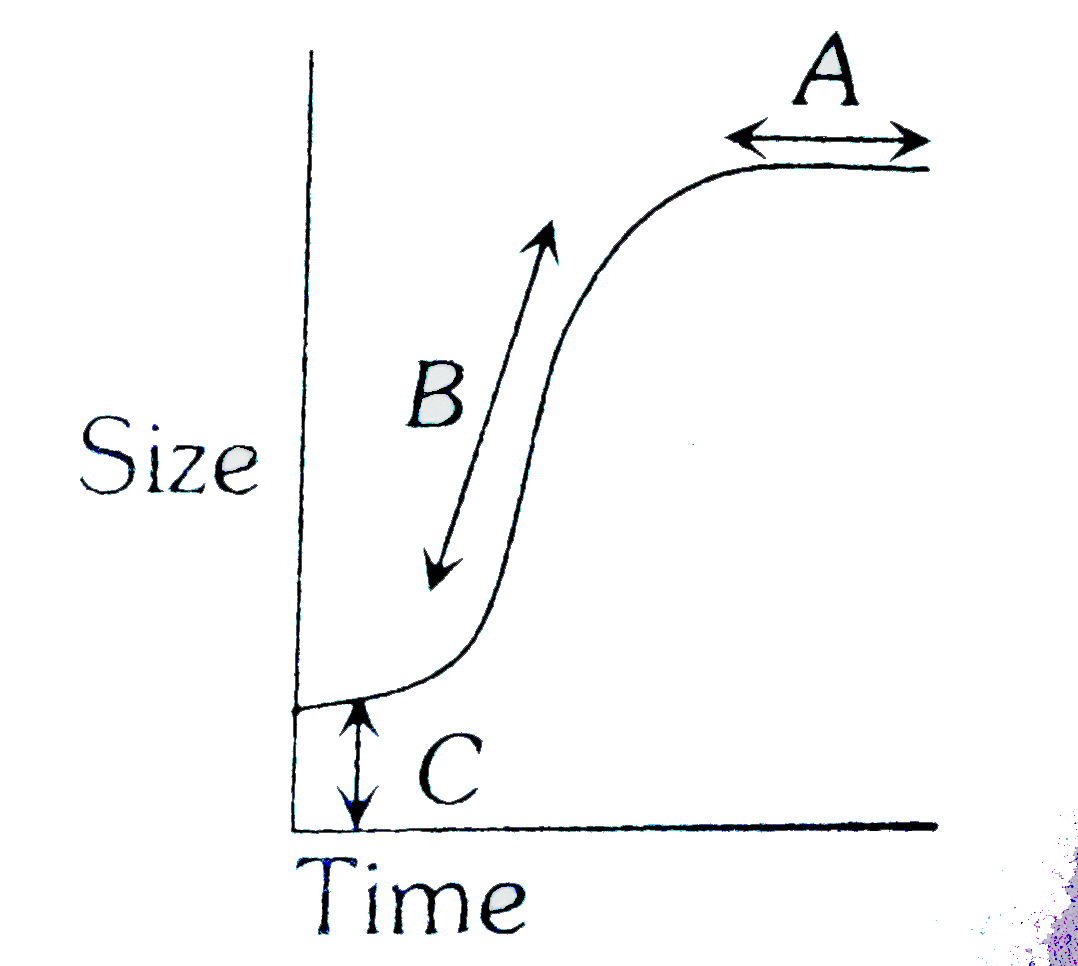 AExponential phase ,log phase and steasdy state phaseBSteady state phase ,log phase and log phaseCSlow growing phase , log phase and steady atate state phaseDLag phase , steady state phase and logarithmic phase
AExponential phase ,log phase and steasdy state phaseBSteady state phase ,log phase and log phaseCSlow growing phase , log phase and steady atate state phaseDLag phase , steady state phase and logarithmic phase - Question 3 - Select One
Study the diagram given below,
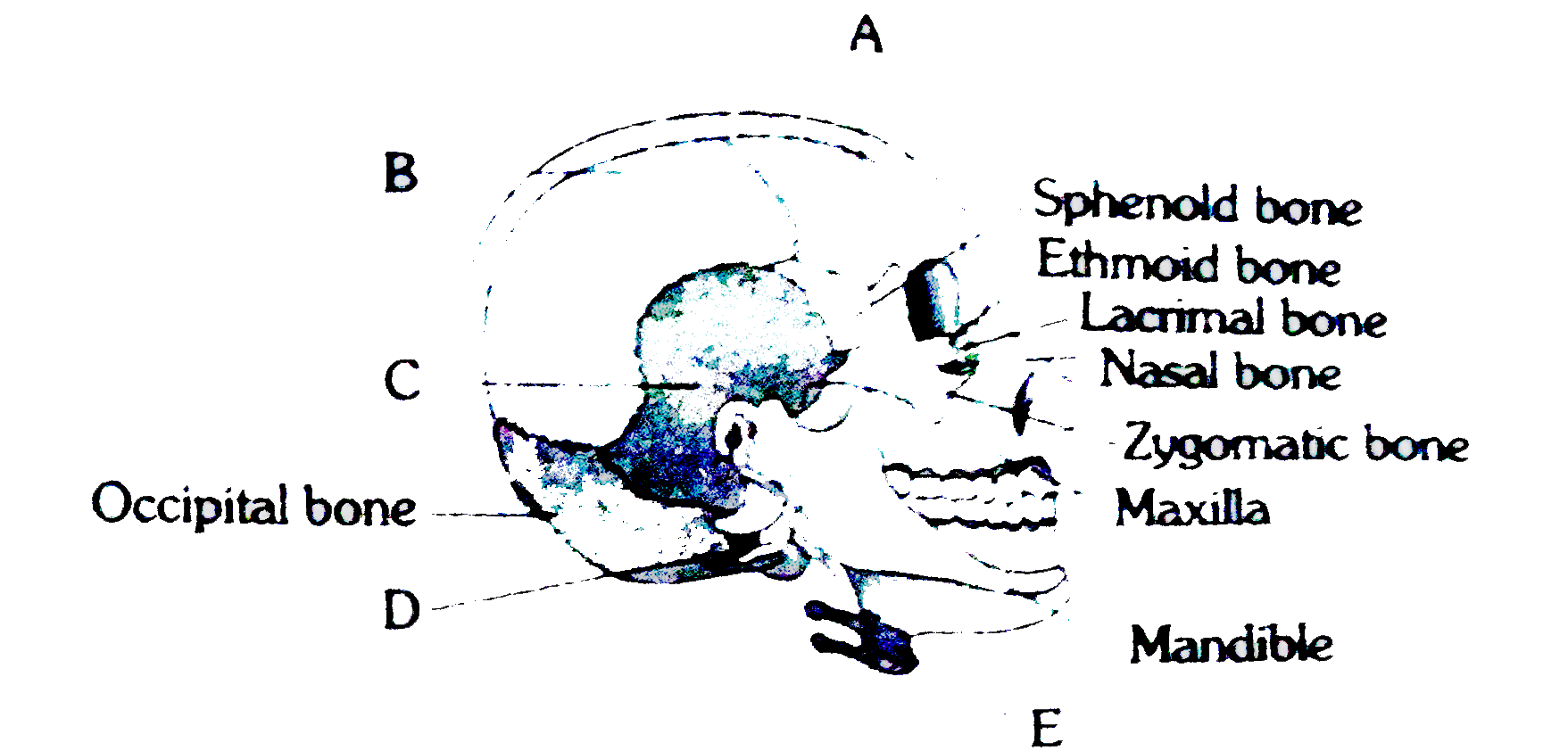
Parts labelled as A,B,C,D and E respectively representAParietal bone, Frontal bone, Temporal bone, Occipital condyle and Hyoid bone.BFrontal bone, Parietal bone, Temporal bone, Hyoid bone and Occipital condyleCFrontal bone, temporal bone, Parietal bone, Occipital condyle and Hyoid boneDFrontal bone, Parietal bone, Temporal bone, Occiptial condyle and Hyoid bone
Draw a graph of temperature versus time.
View SolutionDraw a graph of temperature versus time.
View SolutionThe graph plotted between concentration versus time
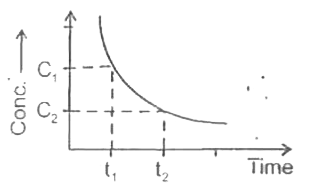 View Solution
View SolutionIf we plot the parameter of growth against time the curve obtained is known as,
View SolutionThe given figure represents some stages in microgametogenesis identify A, B and C respectively
 View Solution
View Solution


